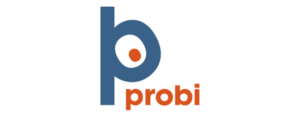Probi Defendum® is based on a combination of the probiotic strains Lactiplantibacillus plantarum HEAL9 (HEAL9™) and Lacticaseibacillus paracasei 8700:2 (L. paracasei 8700:2™), equally contributing to the clinically documented dose of 1 billion (1 B) CFU per day. Several studies describe immune effects after intake of Probi Defendum® with findings on endpoints such as decreased incidence of the common cold, decreased duration of common cold episodes, and decreased severity of common cold measures. The strain L. paracasei 8700:2 has also been studied separately for effects on immune cells and shown to increase the population of natural killer T (NKT) cells and promote phagocytosis.
Probi Defendum® is a registered trademark of Probi AB.
Watch the probiotic mode of action of Probi Defendum®:



